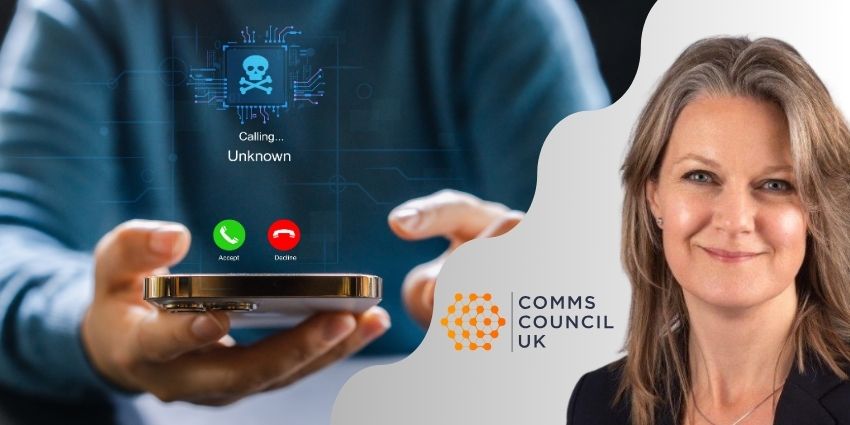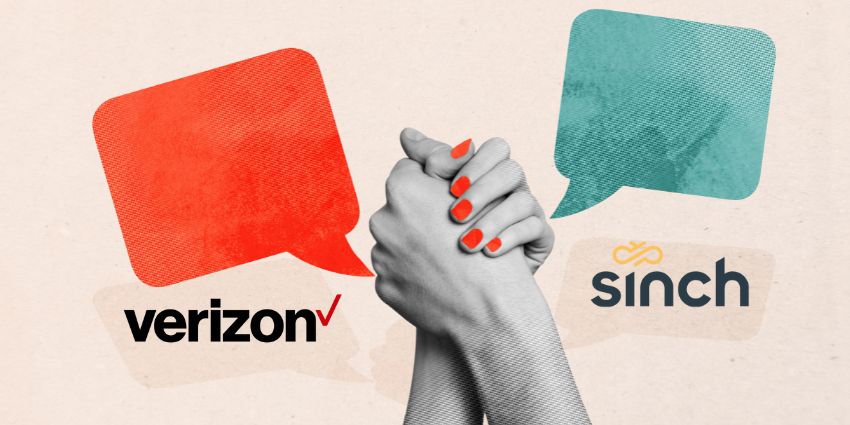The Unified Comms industry is fast becoming a mature one. So mature, in fact, that businesses and resellers are starting to dissect it and have a play around on their own. CPaaS (Communications Platform as a Service) allows developers to enhance their applications without backend Unified Comms infrastructure and interfaces. Theoretically, a regular Joe Bloggs – albeit one with IT and development experience – could potentially become their own service provider.
As telephony has been migrated into the cloud, the possibilities to do more with telephony has become near unlimited. However, businesses have always been at the mercy of their cloud phone system or Unified Comms provider to drive functionality and feature enhancements. The addition of CPaaS to the Unified Comms market is a major move. Businesses that have never played in the telecoms industry are now competing for deals against some of the biggest brands.
Leading lights
 Twilio had a vocal 2018 when it comes to CPaaS. Unlike the traditional Unified Comms vendors we see in the marketplace, Twilio’s background stems from application development. Twilio describe themselves as a cloud communications platform for building SMS, Voice & Messaging applications on an API built for global scale. And that’s exactly what they do. Their product suite essentially provider communications APIs with built-in global intelligence for any real-time communications medium.
Twilio had a vocal 2018 when it comes to CPaaS. Unlike the traditional Unified Comms vendors we see in the marketplace, Twilio’s background stems from application development. Twilio describe themselves as a cloud communications platform for building SMS, Voice & Messaging applications on an API built for global scale. And that’s exactly what they do. Their product suite essentially provider communications APIs with built-in global intelligence for any real-time communications medium.
UC Today reviewed Twilio’s CPaaS offering in August. Ultimately, Twilio stood out by offering unique features associated with both Unified Comms and Contact Centre. Not quite a catch-all, best of breed platform, but a consume as much as you need platform. In the as-a-service market, this is a huge advantage over traditional telecoms vendors.
Through the use of Twilio’s APIs and CPaaS platform, brands like Shopify have been able to completely redesign the way small businesses advertise their products. When Shopify merchants add a new product, a bot will text them “Hey, should we run a Facebook ad to drive traffic to those new products?” With a quick reply, Shopify’s “Kit” bot is ready to create and post that new ad for the merchant.
Challengers
 Back in 2016, Vonage announced they were acquiring Nexmo for $230m. At the time, Nexmo was touted as the second largest CPaaS provider based on figures alone. Nexmo reportedly had more than 350 enterprise customers, including Alibaba, Snapchat and Daimler. So it’s easy to see why Vonage was interested. Nexmo has retained its name since the deal but comes with the subheading of “The Vonage API platform”.
Back in 2016, Vonage announced they were acquiring Nexmo for $230m. At the time, Nexmo was touted as the second largest CPaaS provider based on figures alone. Nexmo reportedly had more than 350 enterprise customers, including Alibaba, Snapchat and Daimler. So it’s easy to see why Vonage was interested. Nexmo has retained its name since the deal but comes with the subheading of “The Vonage API platform”.
Vonage has broken down the Nexmo product offering into individual entities. APIs for SMS, Phone number verification, Phone number insights, Voice API, and chat API can all be purchased separately. Vonage’s move to purchase Nexmo was seen as a potential path for CPaaS dominance. Fast forward a few years and Vonage has completed another acquisition. NewVoiceMedia was purchased for $350m in September 2018. With a CTI and Contact Centre product, another platform leaves the market uncertain as to Vonage’s focus for 2019.
 MessageBird is another CPaaS provider that made headlines in 2018 – and 2019 looks to be the same. The challenger startup raised £60m in its first round of funding for its product that provides a chat API into popular messaging services via third-party websites or apps. The messaging API also allows for SMS and video communications. From raising initial funding in 2017, MessageBird has gone from strength to strength securing customers like Domino’s Pizza, Telegram and Uber. The latter being a significant win from rivals, Twilio.
MessageBird is another CPaaS provider that made headlines in 2018 – and 2019 looks to be the same. The challenger startup raised £60m in its first round of funding for its product that provides a chat API into popular messaging services via third-party websites or apps. The messaging API also allows for SMS and video communications. From raising initial funding in 2017, MessageBird has gone from strength to strength securing customers like Domino’s Pizza, Telegram and Uber. The latter being a significant win from rivals, Twilio.
Industry view
To get an external view on the state of the CPaaS industry, I reached out to a few industry experts. Dave Michels, Lead Analyst at TalkingPointz, commented on how interesting the CPaaS market has become. “Communications are inherently customised”.
“A business can’t just go out and implement a new communications solution”.
“Instead, each user and the system as a whole requires customisation. There are features, classes of services, policies, etc. The solutions for enterprise communications are like snowflakes – no two alike. Then they get combined with other vendors, which means the administrators need a very specialised skill set to maintain. These applications require customisation, but within the confines of the application creators. This often forces customers to compromise on their requirements.
CPaaS offers a different approach. It skips the application and just provides the tools for customisation. These tools use standard web programming techniques instead of vendor-specific administration apps. Customers have a choice – they can customise an app or build a custom app. General applications are pre-built, tested, and supported. Custom apps offer infinite customisation and flexibility. It’s the classic build vs buy scenario but cloud economics now make build viable for communications.
Twilio is the provider credited for creating the concept. As a result, they have one of the most mature and broad offerings. Vonage isn’t far behind with its Nexmo services, and it also offers extensible applications. The traditional UC vendors aren’t sitting still either. Companies like Avaya and Cisco are making customisation and integration far easier than ever before. It boils down to the skills at the customer and their desire or requirements to create their own solution”.
Blair Peasant, Co-Founder of UCStrategies.com, said “The CPaaS market is definitely on the rise, and we’ll continue to see more and more use cases and examples of CPaaS applications. As organisations recognise the benefits of programmable voice, video, and messaging, they will investigate the use of CPaaS. Expect to see a battle between pre-built solutions and “build your own” based on CPaaS”.
What’s next for CPaaS?
Robert Vis, CEO of MessageBird, commented in a CPaaS Roundtable that “as messaging channels continue to evolve, cloud communication platforms are sure to become more popular in the years to come. MessageBird believes that future potential is boundless.”
In Twilio’s 2019 Predictions on UC Today, Devang Sachdev, Twilio’s Director of Product Marketing and Solutions, said
“2019 is set to be the year of the application platform”.
With developers set to have access to the widest range of software and features ever, they are going to benefit from low cost, feature-rich and scalable solutions to drive a real change in their business. Sachdev also pointed to the impact of apps like iMessage, WhatsApp and Facebook Messenger having a huge impact on the Contact Centre play in the CPaaS market. With customer experience an evergreen hot topic, the ability to service your clients in real-time, either person to person or around the clock via a chatbot, and on the platform of their choice, will be a massive win for businesses going through digital transformation journeys.
Expect lots more CPaaS in 2019.






